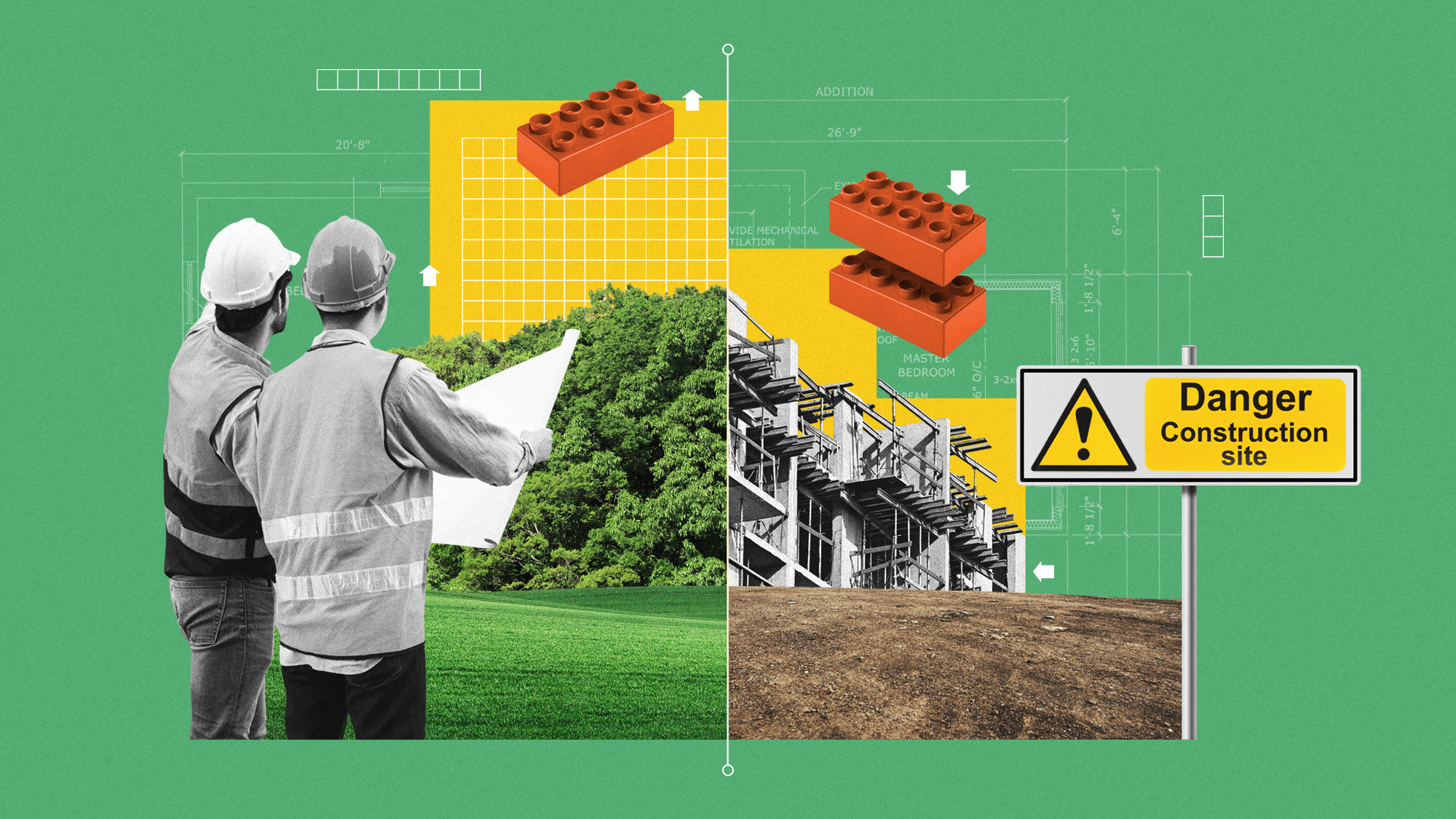Labour's plans to redefine the green belt
Angela Rayner's planning reforms turn green-belt areas into 'grey belt' house-building zones, and campaigners are voicing concerns

A free daily email with the biggest news stories of the day – and the best features from TheWeek.com
You are now subscribed
Your newsletter sign-up was successful
Today, the government will lay out its controversial plan to tackle the housing crisis by forcing councils to prioritise house-building on "ugly" parts of green-belt land.
Deputy prime minister Angela Rayner is expected to make the announcement, part of the government's larger goal of building 1.5 million new homes over the next five years.
"But she is set to face pushback over her plan to allow building on more than 640 square miles of land, similar to the area of Surrey, Greater London or Hertfordshire," said the Daily Mail.
The Week
Escape your echo chamber. Get the facts behind the news, plus analysis from multiple perspectives.

Sign up for The Week's Free Newsletters
From our morning news briefing to a weekly Good News Newsletter, get the best of The Week delivered directly to your inbox.
From our morning news briefing to a weekly Good News Newsletter, get the best of The Week delivered directly to your inbox.
What is the green belt?
The green belt is a protected area that covers approximately 13% of England, forming rings around London, Birmingham, Manchester, and other large towns and cities. It was established in 1938 to prevent "the growth of large built-up areas, and to stop large towns merging into one another," according to the BBC.
Until now, new developments in areas within the green belt have been severely restricted – with some exceptions for agricultural facilities, transport infrastructure, and minor improvements to existing buildings.
Now, Labour is poised to free up some "low-quality" green-belt land to become "part of a grey belt" where new homes can be built – and conservation groups aren't pleased.
"The green belt is incredibly important: it was designed to stop urban sprawl and enhance the quality of people's lives," environmental campaigner Chris Packham told The Times. More creative thinking is needed, he said, about how we can build "good-quality, affordable housing with communities and nature in mind".
A free daily email with the biggest news stories of the day – and the best features from TheWeek.com
What is the 'grey belt'?
Labour's rebrand of the areas it intends to develop as the "grey belt" is a deliberate move away from the images of rolling fields and peaceful woodlands that the term "green belt" evokes.
The idea is "to distinguish between attractive areas of nature, and 'ugly' built-on areas that happen to lie within the green belt", said Building Design.
Grey-belt areas could include disused petrol stations, storage yards, car and caravan parks, and former industrial areas. The government's new rules for grey-belt areas will remove existing construction restrictions, giving local authorities the ability to plan housing developments, new neighbourhoods, install community facilities, and more.
In a sign of the government's intent, Rayner last week overturned Buckinghamshire County Council decision to block the development of a large data centre on green-belt land near the M25. The council had decided the project was "inappropriate", despite the fact that "the building is surrounded by a scrap-metal recycling plant, warehouses and heavy-goods vehicle storage," said The Telegraph.
Labour has previously said that building data centres is an economic priority and, according to housing minister Matthew Pennycook, Rayner believed that blocking this kind of development "would have 'significant negative consequences' for the UK digital economy".
The "green light" for the Buckinghamshire project was "seen as a signal that Labour will take a different approach to planning policy" than the Conservatives did, said the paper.
What do the experts say?
"We are going to see random 'cowpat' developments in the middle of the green belt, without infrastructure and without affordable housing," Rosie Pearson, of the Community Planning Alliance of grassroots organisers, told The Times.
She predicted it's "going to be the worst sprawl we’ve seen since the 1950s", and "any countryside near you" could be "at risk."
Despite a desperate need for housing in the UK, construction and planning professionals have pointed out other problems with the plan: if grey-belt areas are so ugly, why would anyone want to live in them? And is reviving them realistic?
"Even if Labour succeeds in adapting planning rules, bringing forward grey-belt land will not be short of challenges," said Daniel Gayne in Building Design. "The ugliness of many of these former petrol stations and industrial warehouses is often more than skin-deep, with pollution issues requiring costly remediation."
Issues like these could make newly available grey-belt land unpalatable to potential developers and investors. Even if councils do open these areas for development, "it doesn't mean that developers are going to be able to actually build on them," Anna Beadsmoore, a partner on the complex property team at the insurance brokers McGill and Partners, told the trade publication.